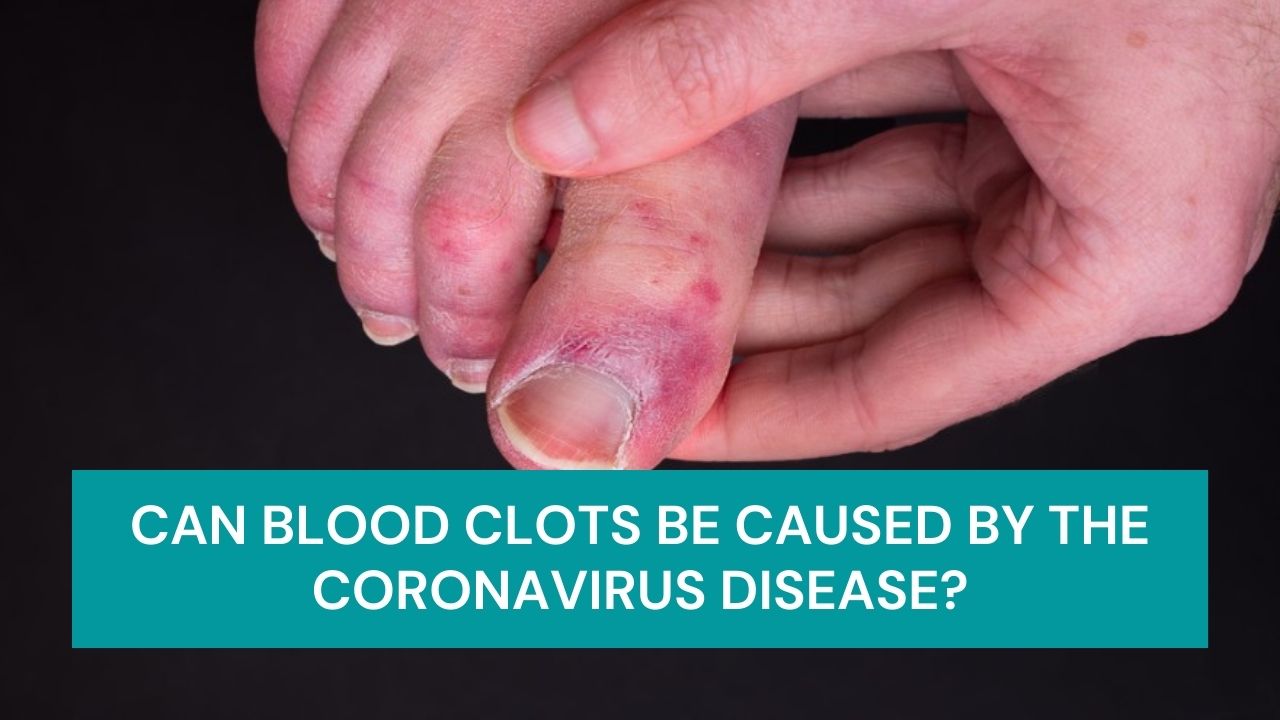A lot of research work is going on all over the world due to the COVID outbreak. There is an increasing evidence to suggest that COVID-19 is not just a disease of the lungs as it has been thought initially thought but it can also cause blood clots that need to be immediately retrieved. The infection is serious for both lungs and blood vessels. In addition to the respiratory system, other organs of the body should also be paid attention. COVID-19 and blood clots are becoming common.
Coronavirus disease is an illness that is caused by the new coronavirus, SARS-Cov-2. The most common symptoms include cough and shortness of breath as it affects the respiratory system. The other common symptoms are associated with the gastrointestinal tract, loss of smell and taste, or even a toe rash. Another possible side effect of coronavirus is that it can lead to the formation of blood clots in some people.
The breathing complications associated with coronavirus disease are not worrisome enough, medical fraternity all over the world is discovering another risk posed by the coronavirus; the formation of blood clots. Blood clotting in COVID-19 can lead to life-threatening strokes, pulmonary embolism, and heart attacks. Death or long-term complications are a real concern. It is also possible that a blood clot could restrict blood flow to the other parts of the body, causing serious damage. Some examples of other areas that a blood clot may affect include the gastrointestinal tract, limbs, and kidneys.
- DVT is a serious condition that occurs when a blood clot forms in a vein that is located deep inside the body.
- While arterial thrombosis is a clot that develops in an artery. Arteries are the blood vessels that carry oxygen-rich blood away from the heart to the body, while veins carry blood low in oxygen from the body back to the heart.
Blood clotting in COVID-19 has most often been seen in hospitalized patients but it is still unknown how common blood clots are in individuals who have a mild case of COVID-19.
How COVID-19 cause the Formation of Blood Clots?
COVID-19 is a very complex illness. First, COVID-19 can cause severe inflammation, which can trigger the mechanism of blood clotting in the body. It is one of the ways of the immune system how it reacts to the injury by making the clotting system more active. But when the infection is as inflammatory as COVID-19, the tendency to develop a clot can become dangerous.
Yes, blood clots can be caused by coronavirus disease due to inflammation. The patients with severe cases of COVID-19 seem especially susceptible, as do those with other health risk factors such as diabetes, obesity, hypertension, cancer, history of blood clots, etc.
Treating and diagnosing clots formed due to COVID-19 is difficult because:
- The symptoms of a worsening lung infection associated with the virus can sometimes be not distinguishable from the symptoms of pulmonary embolism.
- Another challenge is that the virus can impact laboratory tests which are also be used to diagnose venous blood clots.
Some people are at a higher risk for developing blood clots. These are:
- Patients who are hospitalized: Most cases of blood clots have been reported in individuals who have been hospitalized due to COVID-19.
- Individuals who have other conditions that put them at risk of clotting: Some examples include diabetes, heart attack, obesity, etc.
- Individuals who have high levels of certain markers: Patients who have high levels of D-dimer levels are also at an increased risk of developing clots.
Therefore, everyone should monitor for signs of clots. Some of the signs and symptoms of blood clots are:
- Weakness of one arm or leg
- Difficulty in speaking
- Tenderness, pain, or discoloration in the arms or legs
- Sudden shortness of breath
- Chest pressure or pain radiating to the neck, arms, jaw, or back
- Facial drooping
Till now, there is no specific treatment for coronavirus disease. The best way to prevent this highly contagious virus is to take necessary precautions. Some of the precautions include:
- Practicing physical distancing.
- Washing the hands frequently.
- Avoid touching nose, mouth, and eyes with unwashed hands.
- Avoiding people who are sick.
- Wearing a face mask in public places.








